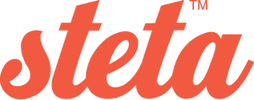Once people begin to accept that technical writing can be a decent career choice, they usually have very similar questions about the field. Here are the top three things that people ask me about technical writing for software applications.
1. What really is technical writing and where does a technical writer fit in?
If you have used a cell phone, camera, fridge, TV, bike, or a car, you have had your brush with technical writing. Yes, all those little booklets with instructions and little diagrams are fine samples of technical writing. These booklets tell you about the device you own – what its features are, how you may use them, what you should do if something malfunctions, and whom to reach out to in case you are unable to troubleshoot on your own.
A technical writer researches and compiles all this information and makes it easier for you (the user), to use the device. If you wish to be a technical writer, you will need to provide similar answers to your audience.
2. Why does the software industry need technical writers?
Software products often tend to be complex in nature – not every user may know how to go about using the product in their first attempt or their tenth attempt even! That’s where a technical writer peeps in to make a difference – by making common sense of an application.
It follows that a technical writer cannot afford to get caught up in technical jargon and ideas. He or she must understand the working of the product and the audience that is going to use it. With this understanding, the technical writer presents user assistance artifacts.
Though there is a growing awareness of usability aspects, often these are side-stepped in the name of ‘good functionality’. Technical writing is an inherent part of usability. It is a technical writer who can make a difference to ease-of-use of a product with the help of a well-written error message, appropriate instructional text, or with meaningful headers on a screen.
3. What skills do you need to become a good technical writer?
To become a competent technical writer you need to develop a few skills.
a) Review the UI. Contribute to new feature developments by reviewing the UI and questioning the features and the screens that go with it. For this, apart from common sense, you will need good command over English language and basic understanding of User Experience principles.
b) Do your research. You must review not just the design but also the functionality of the product. Remember, if something does not make sense to you, it probably won’t make sense to the actual user either.
Go through all available formal documentation such as high-level design documents, functional specifications, user experience mock-ups, and test cases to gain an understanding of a feature. But beyond this, talk to product management, developers, QA engineers, and technical support engineers – you never know where you will find those precious ‘gotchas’ or nuggets of wisdom.
c) Test the product thoroughly. Unless you get hands-on experience of the product, you cannot write effective user assistance solutions. In fact, you (as a technical writer), are the first (non-technical) user of the product and must test the product and log bugs. In fact, you must gain such a hold over your subject that you should be in a position to demo the product in front of any audience.
After you've done this kind of serious research you will be able to convincingly write your various user assistance artifacts.
d) Maintain a healthy rapport with all stakeholders. As a technical writer, you are in a unique position to showcase a product to the outside world. Nothing but the best inputs can help you exploit that position. To get the best inputs therefore, it will serve your purposes well if you maintain a cordial relationship with all stakeholders – whether it is the way you conduct yourself at meetings or control the tone of your e-mails.
e) Be aware of the latest trends in your field. In this age of Facebook and Twitter, it will do no good to your image if you are not aware of the latest trends in your field – whether it means staying abreast with the latest trends in user assistance solutions, tools, or guiding principles for usability – you will need to be on your toes.
In my next blog post, I will talk about how technical writing has evolved. Earlier, technical writers used to come into the picture at the end of the product development cycle. Now, you’ll be surprised, we come in at the beginning!
